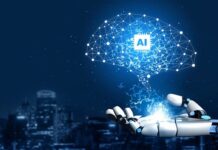Peering into the future, one thing is certain: The role of AI and chatbots will profoundly shape it. Whether it’s self-driving cars or automated customer support, AI’s rapid evolution is transforming industries globally, impacting employment across sectors.
In 2022, researchers studied the transformative power of artificial intelligence (AI) as a general-purpose technology across various industries and societies. They analyzed a panel dataset made up of over 1,300 publicly traded Chinese companies from 2007 to 2018 and they investigated how AI applications influenced labor structures within firms, explicitly focusing on the distinction between workers with and without a formal college education.
The study’s results revealed there was a positive correlation between AI applications and overall employment, including the employment of nonacademically trained workers. Moreover, this finding was more pronounced in the service sector than it was in the manufacturing sector. The analysis also revealed that increased AI applications had a positive impact on a firm’s employment of nonacademically-trained workers and a negative effect on academically trained workers. The researchers attributed these findings to the deskilling effect of AI technology. Consequently, this research emphasized the need to address the structural changes in labor forces and their implications for preparing human employees to collaborate effectively with AI.
While the study focused on the service and manufacturing sectors, what about the role of AI in the future of education, particularly higher education? Well, that’s what we’ll be exploring here today. Read on as we explore the future of higher education with a focus on AI and chatbots. We will delve into how these emerging technologies are reshaping the landscape of academia and their potential implications for students, educators, and institutions alike.
Artificial Intelligence and Higher Education
The rise of AI in recent years has sparked both excitement and apprehension within the education sector. On the one hand, many argue that AI has the potential to revolutionize learning, offering personalized and adaptive experiences tailored to individual students’ needs through machine learning. For instance, imagine a virtual tutor that can assess a student’s strengths and weaknesses, adapt instructional content in real time, and provide instant feedback and guidance. With AI-powered chatbots, students can get their questions answered 24/7, access resources, and engage in interactive discussions, enhancing their overall learning experience.
In fact, this was the case in a 2021 review on AI’s practical use and its impact on teaching and learning in higher education. The researchers conducted a systematic review of AI applications in higher education and they summarized the findings from 146 articles selected from 2656 publications between 2007 and 2018. The review revealed that most artificial intelligence in education (AIEd) research focused on Computer Science and STEM disciplines. Moreover, four critical areas of AIEd applications were identified: profiling and prediction, assessment and evaluation, adaptive systems and personalization, and intelligent tutoring systems.
Although these applications sound promising, there are existing concerns about the role of AI in replacing human instructors. Fortunately, recent research revealed that this would not be the case. Instead, artificial intelligence can be used to assist teachers in achieving a more effective pedagogical approach.
In 2023, researchers conducted a review on the potential of artificial intelligence (AI) in higher education, particularly concerning the role of human teachers. Through a review of related literature and analysis of survey data from students and teachers, the study offered insights into the future of education as AI technologies continue to advance. The review concluded that while some believe that AI may eventually replace teachers, most participants still place great importance on the irreplaceable qualities of human teachers, such as critical thinking, creativity, and emotions. All of these socio-emotional areas can’t be replicated by AI.

Rather than viewing AI as a replacement, the research proposed that teachers integrate AI to effectively enhance teaching and learning. However, this requires teachers to understand how AI can complement their roles while being mindful of potential challenges. As such, developing AI literacy and addressing practical issues like data protection, ethics, and privacy are essential for successful integration.
The review ultimately revealed that students value and respect human teachers, even as AI becomes more prevalent in education. Moreover, the future of education lies in the synergy between human teachers and AI. By embracing their unique qualities and effectively integrating AI, teachers, students, and universities can make learning a holistic and meaningful experience.
Cheating using Artificial Intelligence.
Despite all the advantages that AI has brought to the table, it’s worth taking a look at the downsides of using AI technology. That’s because AI has also provided more avenues for students to cheat, which can have dire implications for the educational system and even the students themselves. This was definitely the case when the controversial chatbot ChatGPT was made available for public use.
In 2023, researchers examined the potential benefits and challenges posed by ChatGPT in education, focusing on its impact from the perspectives of students and educators. Additionally, the study investigated how ChatGPT can enhance programming learning. To illustrate its effectiveness, various coding experiments were conducted, including code generation, pseudocode creation, and code correction, with validation through an online judge system. Surveys were also conducted with students and teachers to assess ChatGPT’s support in programming education.

The study eventually concluded that ChatGPT could assist with various tasks such as answering questions, writing essays, explaining complex topics, tutoring, language practice, programming learning, teaching, and research support. Surveys and experiments demonstrated that ChatGPT is beneficial for programming education, broader educational, and research purposes.
However, it’s essential to recognize the limitations of ChatGPT, including a lack of common sense, potential bias, difficulties with complex reasoning, and the inability to process visual information. Moreover, ethical considerations surrounding ChatGPT, such as bias, privacy and security, misuse of technology, accountability, transparency, and social impact, should also be considered.
Is ChatGPT cheating, or is it the future of education?
Even though there’s a lot of controversy surrounding it, there’s no doubt that ChatGPT is a technological marvel. However, with all its nifty features, at the end of the day, it’s still a tool and its usefulness depend on how we use it. As such, general consensus on its usage is still debatable, as various institutions and educators either embrace or reject it.
For instance, according to a 2023 article from the Stanford Daily, Stanford University students and faculty members are at odds with the impact of ChatGPT on education and its implications. In fact, some professors have made significant changes to their courses in anticipation of how students may utilize the chatbot to complete assignments and exams.
The university news outlet also conducted an informal poll revealing that a considerable number of students have already used ChatGPT during their final exams. The question of whether introducing this new technology will require the university to revise their Honor Code, which governs academic integrity, remains uncertain.

Moreover, New York City’s education department has taken measures to restrict access to the site, citing concerns about the potential adverse effects on student learning and the safety and accuracy of the content provided by ChatGPT. However, some institutions fully embrace the AI tool and are actively integrating it into their educational system.
Institutions such as Washington University in St. Louis and the University of Vermont in Burlington have updated their academic integrity policies to incorporate AI tools like ChatGPT. Aside from schools, teachers are also embracing the use of ChatGPT, allowing students to intentionally use the tool to aid them during class.
One good example of this was in a 2023 news article from NPR which featured a story of an associate professor at the University of Pennsylvania’s Wharton School, Ethan Mollick, who made it mandatory for his students to use ChatGPT and has officially incorporated an AI policy into his syllabus.
Professor Mollick, specializing in entrepreneurship and innovation, has witnessed positive outcomes after requiring his students to use ChatGPT. Interestingly, even if the use of ChatGPT was not mandatory, Mollick believes that students still choose to utilize it. During a class project brainstorming session, nearly all students had ChatGPT running, generating project ideas, and engaging in discussions with the bot.
Mollick expressed satisfaction with the quality of the ideas generated through these interactions. However, he acknowledged the possibility of ChatGPT occasionally providing misleading information. Despite feeling a mix of excitement and concern about AI’s impact on educational assessments, Mollick strongly advocates for educators to adapt to the changing times.
Other Considerations and Challenges
Aside from cheating, chatbots like ChatGPT also bring other forms of challenges in higher education, such as data privacy and security concerns, its lack of socio-emotional awareness, and even endangering the essence of education itself.
Data Privacy and Security Concerns
Data privacy and security have become paramount concerns in the digital age. Chatbots, being communication systems that interact with users and collect information to teach more effectively, raise questions about the privacy and security of the data they handle. As such, the nature of chatbot interactions, which can involve personal and sensitive information, makes establishing robust data protection measures crucial.
In 2021, a special article was published in the journal “Concurrency and Computation: Practice and Experience” on the security, privacy, data protection, and social aspects of chatbots. In this article, the authors compiled and analyzed various literature to shed light on how chatbots could be used to exploit users.
The article cited that while chatbots assist in numerous tasks, they also introduced additional security risks and posed significant challenges. Most notably, modern chatbots have evolved from rule-based models to incorporate advanced natural language and machine learning techniques. As a result, they learn from conversations that may involve sensitive personal information.
That being said, it is crucial to understand the key steps in designing secure chatbot systems to mitigate the factors contributing to increased potential security threats and vulnerabilities.
Socio-Emotional Concerns
As mentioned in the 2023 review earlier on the potential of artificial intelligence (AI) in higher education, particularly in relation to the role of human teachers, chatbots can’t replicate qualities that make us uniquely human. As such, its use may not fully address the socio-emotional needs of users.
Human interactions are crucial in providing empathy, understanding, and emotional support, which are essential to effective communication and learning experiences. This was proven to be the case in a 2021 study on integrating emotional intelligence in teaching practice among university teachers in higher education.
In this study, the researchers conducted semi-structured interviews with 10 university teachers and analyzed the results. The findings revealed seven themes on how emotional intelligence mediates teaching practice among teachers in higher education: structured teaching flow, empathetic teaching approach, student engagement, consideration of student emotions, the reflection of teachers’ characteristics, mutual teaching and learning sessions, and meaningful classes.
The study emphasized the significance of developing emotional intelligence abilities among university teachers, as these abilities had a direct impact on the teaching and learning processes.
The Loss of Desired Educational Outcomes
When we go to school, we’re not only taught by our teachers about specific subjects and concepts—we also learn important life skills and values that contribute to our holistic development. However, the increasing reliance on chatbot technology in education raises concerns about the potential loss of some desired educational outcomes.
In 2023, researchers investigated the effect of chatbot-assisted learning on different learning factors and how various variables influenced its effectiveness. The researchers conducted a meta-analysis of 32 empirical studies published between 2010 and 2022, involving 2201 participants.
The study concluded that chatbots had a moderate to high overall effect on educational outcomes, regardless of factors such as intervention duration, chatbot roles, and learning content. Chatbot technology had a significant, positive influence on explicit reasoning, learning achievement, knowledge retention, and learning interest. Unfortunately, no significant improvement was observed in critical thinking, learning engagement, and motivation.
Conclusion
Whether you love it or hate it, artificial intelligence and chatbots are continuously shaping education in various ways—for better or worse. Although there are a number of benefits to using AI, such as personalized and adaptive teaching, availability, and efficient assessments, the use of AI chatbots and its implications in higher education is still up for debate due to potential concerns. From cheating and data security concerns to its lack of socio-emotional awareness and loss of desired educational outcomes, the future of AI in higher education may lead to a slippery slope. As such, we have the social responsibility to use it only for ethical means. This can help us create a future where we can harness the power of AI while safeguarding the core values of education.














